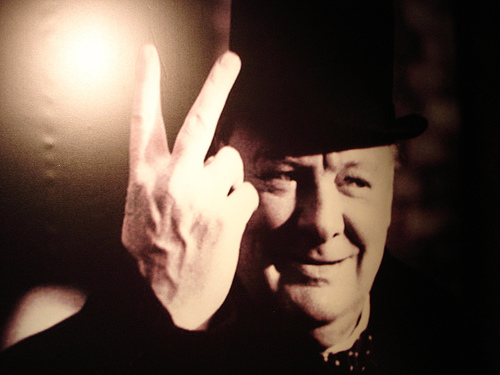Winston Churchill was “lucky” enough to live during a period of history when the enemies of freedom, justice, peace, and stability were recognizable villains with armies and mustaches. The existential threat posed by climate change is far more abstract. It makes for a fight that’s tough to rally people around.
Churchill isn’t with us today to weigh in on the dangers, upheaval—economic, cultural, geo-political, and otherwise—and costs to human life, health, and well-being posed by climate change, but what if he were? How would he talk about it? In the face of Nazi aggression, “Britain became doggedly focused and swung behind a campaign virtually without parallel.” The United States soon followed suit. How would Britain’s wartime prime minister mobilize the public around climate solutions?
Tony Juniper—campaigner and sustainability advisor and author of What Has Nature Ever Done For Us?—asks just those questions in the latest Yes! Magazine.
Inspired by a conversation with Paul Gilding, author of The Great Disruption and former director of Greenpeace International, Juniper pulls quotes from Churchill that readily apply to the climate fight we face today. It works.
It’s the kind of bold leadership we could use right about now.
[flashcard]
Channeling Churchill on Climate
In the face of the plainest warnings, we have now entered upon a period of danger. The era of procrastination, of half-measures, of soothing and baffling expedients, of delays, is coming to its close. In its place we are entering a period of consequences. We are in it now…I see great reason for intense vigilance and exertion, but none whatever for panic or despair. If we can stand up to [climate change] we may be free and the life of the world may move forward into broad, sunlit uplands. But if we fail, then the whole world, including all we have known and cared for, will sink into the abyss of a new Dark Age…One ought never to turn one’s back on a threatened danger and to run away from it. If you do, you will double the danger…Let us therefore brace ourselves to our duties, and bear ourselves so that [in] a thousand years, men will still say, “this was their finest hour.”
[/flashcard]


Comments are closed.